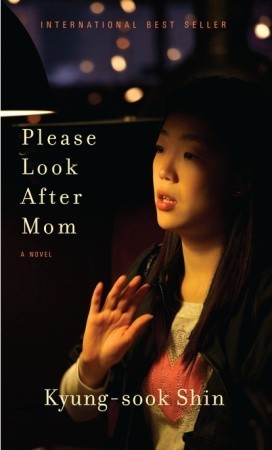

I thought to myself then that, one day, when I became a writer, I would write something to remember my mother by,” she said. “On the night I left home, my mother traveled with me.

“I was sixteen when I left the countryside and moved to Seoul,” she remembered. Shin, 49, left behind her farming family in Jeolla Province when she was a teenager, to live in South Korea’s capital and earn money for her education. And I don’t think that’s restricted to Korean society.” “Kids nowadays are definitely different from the traditional generation that came before us. But she believes that enough overlap exists between Eastern and Western cultures to give her themes global resonance.

Shin’s novel charts are of more recent vintage, and occurred in the author’s lifetime, as democracy and prosperity in South Korea flourished. “It doesn’t have to be the mom who disappears it could be anything precious to us that has been lost, as we’ve moved from a traditional society to a modern society.” In the West, that shift took place more than half a century ago but the transformations that Ms. “It’s the mother who goes missing, but that’s a metaphor,” she said. Shin warns against over-literal interpretation. It would be easy to take the story of Please Look After Mom at face value, but Ms. Still, she does not know for sure if her mother has read the novel: “I was too shy to ask her if she liked it.” “She reads the Bible all the time,” her daughter said. Shin conceded that, “The mother in this novel is maybe a little bit like my mother,” but emphasized: “She is different, a fictional creation.” For instance, while her own mother does in fact prepare the homemade foods that appear in the novel, like sesame-leaf kim chi, stewed beef, and fermented bean paste soup, she is not illiterate. Shin recalled through an interpreter, “After my book came out, a Korean woman writer called me and asked, ‘Did you find your mother?’ She thought the story was completely real.” Modest but confident, with long, smooth hair and a gentle demeanor, Ms. Published in English in 2011, and translated into 32 languages, the book tells the quietly devastating story of a hard-working, illiterate rural mom who goes missing (for good, it would seem) in a bustling Seoul train station, during a trip to the big city to visit her neglectful grown children-her businessman son, and her writer daughter.Īt a café in New York, where she traveled last month for a whirlwind tour accompanying the paperback release of her novel, Ms. Shin became the first Korean and the first woman to win the Man Asian Literary Prize-beating out Haruki Murakami, Amitav Ghosh, Rahul Bhattacharya, Banana Yoshimoto, and other worthy rivals -for her novel Please Look After Mom. Kyung-sook Shin would like everybody to know that she knows exactly where her mother is.


 0 kommentar(er)
0 kommentar(er)
